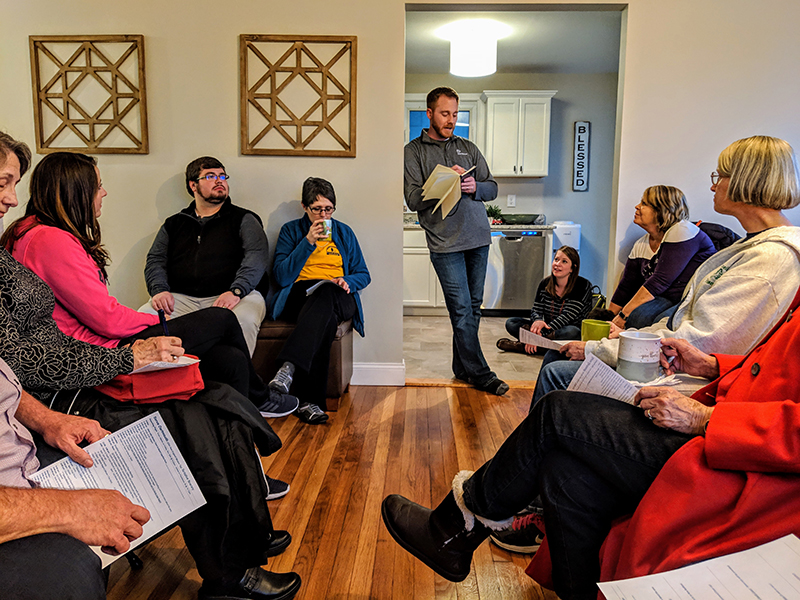One morning, I was on my way home from the YMCA in downtown Brooklyn, which was just three blocks from my apartment. On that short walk home, I ran into a local waffle shop to grab some water, and the owner just says to me, “Are you a man of the Lord?” His approach shocked me, and it led to us having a 20-minute conversation about his life and Jesus. After we had finished talking, he said, “I’m going to make sure I’m at your church service this Sunday.”
When something like that happens, you quickly realize that God has called you to that exact moment for a reason. He wants us to be able to share in His love for what He’s doing in the lives of the people in the city.
In such a populated city like Brooklyn, New York, these kinds of conversations happen every day.
Our decision to plant in Brooklyn stemmed from the brokenness in the area. There are 120,000 people that live within one mile of this church building, so it’s out of the desperate need in the area that we have planted the church.
As we began our ministry, we noticed something strange. Brooklyn has a massive church building that seats 600 people, but as people are walking throughout the city, it’s largely invisible. We are not in an “if you build it, they will come” scenario. This is where balance comes in. We want to use the building as a tool of ministry, which is really significant because there’s a ton of SBC churches that don’t own their own building. So, having a building is huge. But also, we much recognize that the building is only a tool; it’s not necessarily going to provide any shortcuts to reaching people.
Although there are challenges to reaching people in our city, I could never paint Brooklyn in a negative picture. In a profound way, in these last six months, God has made it so apparent and obvious that He has gone before us and fortified our path. It would be such a misstep if I just left out the fact that God has overwhelmingly demonstrated His power in this city. The conversations we’ve had with people are so much beyond what I could have ever expected. People in Brooklyn are more receptive to the gospel than I would have ever believed.
Of course, the cultural thought toward Christianity here is a complicated one. I think that there is a lot of misunderstanding about God and about church, and I think that there has definitely been a lot of examples of abuse and manipulation that’s taken place. The way our church approaches spreading the gospel is simple: we work to get to a place where people will trust us, and then we leverage that for people to be able to trust God and the church.
We can’t just come in their lives and say that God loves them. That’s just generic phrasing. We believe that we have to show that we genuinely love them in order for them to hear that God loves them. This is how we embrace the culture here, by earning trust and building on relationships.
One thing that is crucial to being a successful church planter in a lost city is trusting that God has paved the way for you to be there. Just the other day, we ran into a couple that lives two units down from our apartment. Originally, the conversation stemmed from the fact that we both had newborn babies. But, as we started talking about little baby things, the couple began pushing a little further into what we were doing in Brooklyn, which naturally led to talking about God’s mission. The more we spoke, the more intrigued they got by what we had to say.
This opportunity of having a gospel conversation came from us walking outside, just two units down from where we live, and God gave us a platform to minister.
Especially in a place like New York, church planters have to remember that in post-Christian areas, opportunities like this can happen anywhere and at any time. As long as you are following God’s calling for your life, you will meet people who are thirsting for the gospel.
All you have to do is start the conversation.
Published October 18, 2017
